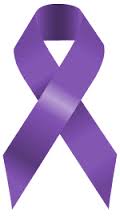 Jefferson mayor Craig Berry has declared Wednesday, Oct. 21, as a day to “Turn Greene Purple” in support of the Greene County Coalition Against Domestic Violence’s work to combat domestic violence. “It is my privilege to support this coalition’s actions to help the survivors of domestic violence,” Berry said. Area residents are encouraged to wear purple clothing or purple ribbons that will be available many places.
Jefferson mayor Craig Berry has declared Wednesday, Oct. 21, as a day to “Turn Greene Purple” in support of the Greene County Coalition Against Domestic Violence’s work to combat domestic violence. “It is my privilege to support this coalition’s actions to help the survivors of domestic violence,” Berry said. Area residents are encouraged to wear purple clothing or purple ribbons that will be available many places.
The Greene County Coalition Against Domestic Violence, composed of volunteers, law enforcement officials, pastors, social work professionals and others, works with ACCESS (Assault Care Center Extending Shelter and Support), to decrease the incidence of domestic abuse in our communities and to serve the victims of domestic abuse.
ACCESS provides free and confidential support to victims of domestic violence. This includes:
- A 24-hour crisis line 1-855-983-4641; for a victim, friend, family or support to reach an advocate to discuss options for immediate safety or wellbeing.
- Housing advocacy: help in assessing a victim’s current living situation, and making a plan for safety relating to where that victim lives. This may mean seeking funds for rent assistance so that a victim can stay in her/his own home, assistance in relocating to a safer place, or financial counseling to help a victim organize her/his resources to increase stability.
- Response: In-person, 24/7 response to victim in need, such as when reporting domestic violence to law enforcement or a medical provider, or to another location where a victim is seeking help.
- Civil legal advocacy: support and education in civil legal cases such filing an order of protection or pursuing custody for the protection children.
- Criminal justice advocacy: support to a victim as she/he reports a crime, or is involved in later proceedings relating to the crime such as meetings with attorneys or court hearings.
- Systems advocacy: assistance to a victim in seeking help from, or explaining needs to, systems such as the Department of Human Services, schools, workplaces, or counseling providers.
- Community education and training; to help all community members engage in the fight against domestic violence and to enhance community member’s and professional’s skills to increase protections for victims.
ACCESS also provides domestic abuse counseling to assist a survivor of domestic violence in recognizing the impact of abuse, in identifying the strength that she/he had in surviving this abuse, and to recognize resources that can be utilized for long term healing and growth.
